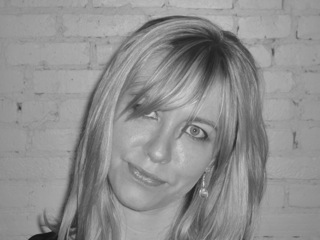
Leave it to NYT's Idea of the Day blog to get those languid brain cells dancing. Today, the Week in Review Staff asks whether there is A ‘Churchill Gene’ for Creative Drinking? and explores the notion that a lucky (or unlucky) few of us have a gene that helps us turn booze into creativity.
The blog links us to Prospect Magazine's fascinating article I drink, therefore I can. In this piece, Philip Hunter maintains that many of history's most feted artists and writers and thinkers -- including Winston Churchill, Mark Twain, William Faulkner, Vincent Van Gogh, Jackson Pollock, Francis Bacon -- used alcohol as a "fuel for [their] muse," namely as a means to their creative ends.
Hunter points to contemporary scientific evidence that suggests that as much as 15% of the Caucasian population has a gene -- call it the 'Churchill gene' or the 'creative cocktail gene' or 'the G-variant of the mu-opioid receptor' -- that in fact makes ethanol behave more like an opioid drug, such as morphine, with a more intense than normal effect on mood and behavior. It has been argued and observed that the gene creates an initial euphoria, followed by prolonged periods of relaxation and enhanced creativity. It is interesting to note that Hunter also writes that people with this euphoria/creativity producing gene variant also seem more prone to alcoholism.
What do you think? Do you think the idea of an alcohol/creativity gene is plausible? Is this an attempt to defend the historical or contemporary abuse or misuse of alcohol in our culture? Have you experienced bouts of creative euphoria after knocking back a few? Do tell!

At the risk of sounding like a philistine, I have to say the alcohol creativity gene sounds like a load of crap to me. More plausible to me is that the artists cited were similar in many ways other than a supposed gene. Certainly, they were all prone to immersing their life into their art/vocation. The fact that they felt freer to express themselves after a couple of glasses of wine is an extension of the social effects of alcohol. There is certainly confirmed anecdotal and scientific evidence that alcoholism can be genetic. To me, the proven destructive effects of alcoholism outweigh any potential creative gains. I find the study to be flimsy at best and likely to encourage alcoholism in the name of art at the worst.
ReplyDeleteI do think great artists are born with talent but take a look at David Brooks' piece last week on the modern view of Genius being not so much born but made. http://www.nytimes.com/2009/05/01/opinion/01brooks.html?_r=1
Brooks asserts that it is predisposition to creativity coupled with intense devotion to the craft that has resulted in great art. It is a truly democratic way of looking at genius, that we can all achieve it if we just work hard enough (and if we don't, we can feel bad about ourselves a la Judith Warner, it's the American way!)
As to me, I do not experience creative euphoria after a good cabernet. I am perhaps wittier, and more affectionate (dh, a type 1 diabetic who does not drink at all, enjoys the latter especially) but creatively neutral. My best ideas for new ways to approach my investigations, or for writing a compelling summation often come when I am running or when I am sleeping (yes, I dream about my cases, I clearly am no Faulkner! Perhaps my whole manner of working and living is too conventional too consider the Churchhill gene as anything more than an excuse for over(self)indulgence.
Great topic!
D